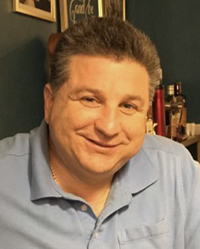National Popular Vote vs The Electoral College Debated
Donald Trump was sworn-in as the 45th president of the United States Friday, despite receiving nearly three million fewer votes than Democratic rival and Chappaqua resident Hillary Clinton in November.
It was the fourth time in presidential election history that the president-elect was chosen through the Electoral College system but failed to garner the majority of support of Americans who turned out at the polls—a situation that has rekindled debate over how the commander-in-chief is selected.
A nationwide effort is underway to try to change to a National Popular Vote, which some political pundits feel will occur in the near future.
“It’s going to happen eventually. I think by 2024,” Hendrik Hertzberg, a political analyst and senior editor and staff writer at The New Yorker, said during a recent discussion on voting reform at the Croton Free Library sponsored by State Assemblywoman Sandra Galef (D/Ossining) and the American Association of University Women Westchester Chapter.
“I don’t want the loser to win no matter what the election is,” said State Assemblyman Jeffrey Dinowitz (D/Bronx, 81st District), who also participated on the panel in front of approximately 150 attendees. “I like my vote to count for something. I feel cheated. If I didn’t show up at the polls nothing would have changed. One person, one vote—that’s supposedly what this country is all about.”
Contending that with the current Electoral College, where 270 electoral votes out of a possible 538 are needed to prevail (Trump received 304 to Clinton’s 227), only a dozen so-called battleground states determine the outcome, Hertzberg and Dinowitz said most voters feel powerless.
“There’s a lot of reasons to change the way a president is chosen,” Hertzberg said. “The system we have systematically devalues grassroots politics. There’s virtually zero campaigning or dollars spent in 40 states. If Hillary had won the Electoral College but lost the popular vote, this would happen in a flash.”
Currently, 10 states, including New York and New Jersey, possessing 165 electoral votes have adopted National Popular Vote legislation. The bill has passed at least one legislative chamber in 12 other states (totaling 96 electoral votes) and been unanimously approved at the committee level in two other states (27 electoral votes).
“The person with the most votes wins, except for the most important position in the United States: president,” Dinowitz said.
“If enough states do it all at once, presto-chango!” Hertzberg remarked. “That’s what the National Popular Vote does. This would make presidential campaigns national. The presidential election today has nothing to do with what was envisioned.”
Jeanne Zaino, professor of political science and international studies at Iona College, said the Electoral College is part of “a flawed system,” but also maintained there were no assurances switching to a National Popular Vote would increase voter turnout.
“Our process in selecting the president doesn’t always yield the best person for the job because of the way the system is set up,” Zaino said. “Everybody’s vote should count equally and that isn’t the case with our system. In a fair democracy everyone needs to have their vote counted equally. The principles of equal representation is not kept in the Electoral College. We need to go back and see why we have it and if it still withstands.”

Rick has more than 40 years’ experience covering local news in Westchester and Putnam counties, running the gamut from politics and crime to sports and human interest. He has been an editor at Examiner Media since 2012. Read more from Rick’s editor-author bio here. Read Rick’s work here: https://www.theexaminernews.com/author/pezzullo_rick-writer/
